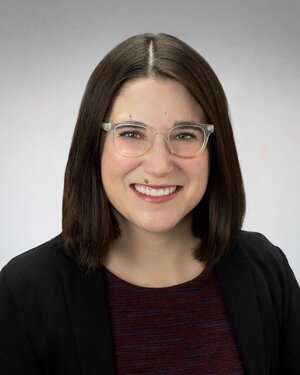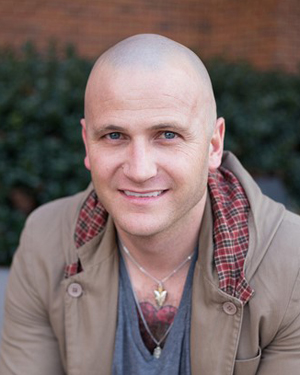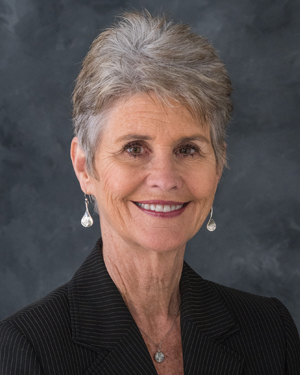Board of Directors
Officers:
 PRESIDENT - MICHAEL GOLD PRESIDENT - MICHAEL GOLD
Michael S. Gold, Ph.D., is a Professor of Neurobiology at the University of Pittsburgh. Dr. Gold received his B.A. from UC Berkeley, Ph.D. from UCLA, and was postdoctoral fellow with Jon Levine at USCF. For the last twenty years, Gold’s research focused on the neurobiology of pain. He has made important contributions to injury-induced plasticity in nociceptive afferents, and their contribution to the manifestation of persistent pain. Toward this end, he has employed an array of approaches ranging from the study of isolated cells to the development of novel behavioral assays with which to assess the presence of persistent hypersensitivity, and more recently the study of clinical populations suffering from persistent pain. Dr. Gold has been actively involved in the greater pain community where he was a member of Council for the International Association for the Study of Pain (2012-2018) and a member of the executive committee of the North American Pain School (2015-2019). He was the Chair of the Scientific Program Committee for the American Pain Society (2017) and the International Association for the Study of Pain (2018) and received the F.W.L. Kerr award for basic science research in 2016.
DISCLOSURE: Grunenthal (non-publicly traded entity)

TREASURER - JENNIFER HAYTHORNTHWAITE
Jennifer Haythornthwaite, Ph.D., is a psychologist and Professor of Psychiatry & Behavioral Sciences at Johns Hopkins University. She studies the psychosocial aspects of pain, particularly the impact of negative emotions and pain coping strategies on pain and pain-related disability. Her recent work has examined the impact of negative emotions and pain coping strategies on neuropathic pain and she is currently testing psychological and drug treatments for pain and symptom reduction in chronic illness. She is a past recipient of an NINDS K24 career development award and a members of the executive committee of the North American Pain School (2019- present). She is very interested in mentoring and early career development for the next generation of pain researchers.
DISCLOSURES: None
 SECRETARY - JESSICA MERLIN SECRETARY - JESSICA MERLIN
Jessica Merlin, M.D., Ph.D., is a physician and behavioral scientist and NIH-funded clinician-investigator. Her research includes foundational work on the pathophysiology, clinical epidemiology, and behavioral management of chronic pain in people with HIV. This work has extended to management approaches to pain and opioid misuse/use disorder in individuals with serious illness in palliative care settings. She has been recognized nationally for her work with three Young Investigator awards from relevant societies, an Inspirational Leader Under 40
Award from the American Academy of Hospice and Palliative Medicine, and a Cambia Foundation Sojourns Scholar Leadership Award.
DISCLOSURES: Grant recipient, Cambia Health Foundation (non-publicly traded entity)
Directors:
 Staja "Star" Booker, PhD, RN is an Assistant Professor of Nursing at the University of Florida (UF). Dr. Booker received her BSN from Grambling State University, M.S. from Penn State University, Ph.D. from the University of Iowa, and was a postdoctoral fellow with Dr. Roger Fillingim at the UF. For nearly 10 years, Star’s research has focused on pain disparities, using mixed methods to understand the management of pain in older adults. Currently, her work is phenotyping movement-evoked pain by identifying biopsychosocial-behavioral predictors in older African Americans and White Americans. She has made significant contributions to the assessment of pain in older adults and to understanding the lived experience of older African Americans with persistent pain. An engaged scientist, she has contributed to over 35 peer-reviewed articles, 6 book chapters, and nearly 70 research abstracts and scientific presentations. She has received numerous awards and publication accolades. Dr. Booker is actively involved in several organizations such as the International Association for the Study of Pain, American Society for Pain Management Nursing, the Gerontological Society of America, and the American Nurses Association. Staja "Star" Booker, PhD, RN is an Assistant Professor of Nursing at the University of Florida (UF). Dr. Booker received her BSN from Grambling State University, M.S. from Penn State University, Ph.D. from the University of Iowa, and was a postdoctoral fellow with Dr. Roger Fillingim at the UF. For nearly 10 years, Star’s research has focused on pain disparities, using mixed methods to understand the management of pain in older adults. Currently, her work is phenotyping movement-evoked pain by identifying biopsychosocial-behavioral predictors in older African Americans and White Americans. She has made significant contributions to the assessment of pain in older adults and to understanding the lived experience of older African Americans with persistent pain. An engaged scientist, she has contributed to over 35 peer-reviewed articles, 6 book chapters, and nearly 70 research abstracts and scientific presentations. She has received numerous awards and publication accolades. Dr. Booker is actively involved in several organizations such as the International Association for the Study of Pain, American Society for Pain Management Nursing, the Gerontological Society of America, and the American Nurses Association.
DISCLOSURES: None

Robert Gereau, Ph.D. is the Dr. Seymour and Rose T. Brown Professor and Vice Chair for Research in the Department of Anesthesiology at Washington University School of Medicine, where he also serves as Director of the Washington University Pain Center. He earned a BS in Biology from Missouri State University, a PhD in Neuroscience from Emory University, and was a postdoctoral fellow with Stephen Heinemann at the Salk Institute. Gereau’s research program seeks to determine the cellular and molecular changes that underlie the development of chronic pain conditions. His lab utilizes a combination of behavioral studies, patch clamp electrophysiology, optogenetics, in vivo imaging, molecular and genetic approaches to understand the signaling pathways, cells and circuits involved in nervous system plasticity that underlies pain sensitization. Work in the lab also includes comparative studies of human physiology to preclinical models, as well as healthy human volunteer studies aimed at establishing proof of concept for novel analgesic therapies based on findings from the laboratory. Recent work in the lab has included work to develop novel technologies enabling the measurement and manipulation of neuronal activity in freely moving animals. He was the recipient of the Frederick W.L. Kerr Award for Basic Science Research from the American Pain Society in 2017. Gereau served as a member of the board of directors for APS, including several years as the Board Chair for Research, and currently serves on the NIH HEAL Initiative’s Multidisciplinary Working Group.
DISCLOSURES: Co-Founder and Owner, Neurolux, Inc
 Burel R. Goodin, Ph.D. is currently an Associate Professor with tenure in the Department of Psychology at the University of Alabama at Birmingham. He received his Ph.D. in Clinical Psychology (emphasis on Behavioral Medicine) in 2010 from the University of Maryland, Baltimore County. He then completed a post-doctoral fellowship in pain research at the University of Florida before taking a tenure-earning Assistant Professor position at the University of Alabama at Birmingham in 2012. He serves as the Director, of the Biobehavioral Pain Research Laboratory and Co-Director of the Center for Addiction & Pain Prevention & Intervention (CAPPI), both at UAB. Dr. Goodin’s research utilizes a social neuroscience framework to help guide understanding of the mechanisms that drive pain disparities. For instance, work by his group has previously demonstrated that experiences of racial discrimination are associated with altered central nervous system processing of noxious stimuli in African Americans with painful knee osteoarthritis. Relatedly, his laboratory has recently shown that high levels of experienced social stigma promote depression and inflammatory cytokine proliferation in persons living with HIV and chronic pain. Dr. Goodin’s professional goals include: 1) bring increased attention to, and help mitigate, the pervasive disparities in the experience of pain, and 2) mentor the next generation of clinician scientists. Burel R. Goodin, Ph.D. is currently an Associate Professor with tenure in the Department of Psychology at the University of Alabama at Birmingham. He received his Ph.D. in Clinical Psychology (emphasis on Behavioral Medicine) in 2010 from the University of Maryland, Baltimore County. He then completed a post-doctoral fellowship in pain research at the University of Florida before taking a tenure-earning Assistant Professor position at the University of Alabama at Birmingham in 2012. He serves as the Director, of the Biobehavioral Pain Research Laboratory and Co-Director of the Center for Addiction & Pain Prevention & Intervention (CAPPI), both at UAB. Dr. Goodin’s research utilizes a social neuroscience framework to help guide understanding of the mechanisms that drive pain disparities. For instance, work by his group has previously demonstrated that experiences of racial discrimination are associated with altered central nervous system processing of noxious stimuli in African Americans with painful knee osteoarthritis. Relatedly, his laboratory has recently shown that high levels of experienced social stigma promote depression and inflammatory cytokine proliferation in persons living with HIV and chronic pain. Dr. Goodin’s professional goals include: 1) bring increased attention to, and help mitigate, the pervasive disparities in the experience of pain, and 2) mentor the next generation of clinician scientists.
DISCLOSURES: None

Keela Herr, PhD, RN, AGSF, FGSA, FAAN is the Kelting Professor in Nursing, Associate Dean for Faculty, and Co-Director, Csomay Center of Gerontological Excellence, College of Nursing at the University of Iowa. For more than 30 years, Dr. Herr has engaged in a program of research, scholarly, and professional activities focused on the problem of pain in older adults, with emphases in assessment strategies, improving practices through translation research and end of life care. Her research focusing on improving pain management practices for older adults in diverse settings has been funded by AHRQ, NINR,NCI and private foundations. Dr. Herr is co-PI of the College of Nursing’s NINR T32 training grant focused on Pain and Associated Symptoms. Dr. Herr presents nationally and internationally on strategies for improving assessment and management of pain in elders and has published extensively on the topic of elder pain. She provided national professional leadership in service on the Board of Directors for the American Geriatrics Society, the American Society for Pain Management Nursing (ASPMN), and the American Pain Society (APS) and in development of clinical practice guidelines. Dr. Herr has received numerous awards for her contributions to geriatrics and pain care for older adults with the most recent Gerontological Society of America’s Doris Schwartz Gerontological Research Award. She is a Fellow in the American Academy of Nursing, the American Geriatric Society and the Gerontological Society of America.
DISCLOSURES: None
 Benjamin Lee, MD, MPH, is an Associate Professor of Pediatric Anesthesiology at the Baylor College of Medicine in Houston, Texas. He is the Division Chief of Pediatric Pain Medicine in the Department of Anesthesiology, Perioperative, and Pain Medicine at Texas Children's Hospital in Houston, Texas. Dr. Lee received his B.A. from Duke University in Durham, North Carolina, his M.D. from the Wake Forest University School of Medicine in Winston-Salem, North Carolina, and his MPH degree from the Harvard School of Public Health in Boston, Massachusetts. He completed an Internship in General Surgery at the University of California-San Diego Medical Center, residency in Anesthesiology at the University of North Carolina Hospital in Chapel Hill, North Carolina, and a postdoctoral fellowship in Pediatric Anesthesiology from the Yale School of Medicine in New Haven, Connecticut. He has board certification in Anesthesiology, Pediatric Anesthesiology, and Hospice and Palliative Medicine. Over the last 25+ years, he has been an active clinician, educator, and clinical researcher in pediatric pain medicine, pediatric anesthesiology, and pediatric hospice and palliative medicine. His research has been in the fields of patient safety, treatment of pediatric chronic pain conditions, safe use of medications for the treatment of pain, and in human factors safety in medicine, especially in low and middle-income countries (LMIC). His research interests are in the areas of clinical trials, patient safety, and opioid stewardship as well as improving health systems infrastructure, access to care, and clinical outcomes measurement. Dr. Lee has served on the Scientific Program Committee, the Annual Assembly Meeting Program Planning Committee, the Research Committee, and the Quality and Practice Standards Committee for the American Academy of Hospice and Palliative Medicine (AAHPM). He has previously served on the Committee for Pain Medicine for the American Society of Anesthesiologists (ASA) as well as currently serving on the Committee for Palliative Medicine for the ASA. He was also a member of the Advocacy Work Group for the American Pain Society. He is currently a member of the Board of Directors (BOD) of the Society for Pediatric Pain Medicine (SPPM) as well as the Chair for the Research Committee for the SPPM. Benjamin Lee, MD, MPH, is an Associate Professor of Pediatric Anesthesiology at the Baylor College of Medicine in Houston, Texas. He is the Division Chief of Pediatric Pain Medicine in the Department of Anesthesiology, Perioperative, and Pain Medicine at Texas Children's Hospital in Houston, Texas. Dr. Lee received his B.A. from Duke University in Durham, North Carolina, his M.D. from the Wake Forest University School of Medicine in Winston-Salem, North Carolina, and his MPH degree from the Harvard School of Public Health in Boston, Massachusetts. He completed an Internship in General Surgery at the University of California-San Diego Medical Center, residency in Anesthesiology at the University of North Carolina Hospital in Chapel Hill, North Carolina, and a postdoctoral fellowship in Pediatric Anesthesiology from the Yale School of Medicine in New Haven, Connecticut. He has board certification in Anesthesiology, Pediatric Anesthesiology, and Hospice and Palliative Medicine. Over the last 25+ years, he has been an active clinician, educator, and clinical researcher in pediatric pain medicine, pediatric anesthesiology, and pediatric hospice and palliative medicine. His research has been in the fields of patient safety, treatment of pediatric chronic pain conditions, safe use of medications for the treatment of pain, and in human factors safety in medicine, especially in low and middle-income countries (LMIC). His research interests are in the areas of clinical trials, patient safety, and opioid stewardship as well as improving health systems infrastructure, access to care, and clinical outcomes measurement. Dr. Lee has served on the Scientific Program Committee, the Annual Assembly Meeting Program Planning Committee, the Research Committee, and the Quality and Practice Standards Committee for the American Academy of Hospice and Palliative Medicine (AAHPM). He has previously served on the Committee for Pain Medicine for the American Society of Anesthesiologists (ASA) as well as currently serving on the Committee for Palliative Medicine for the ASA. He was also a member of the Advocacy Work Group for the American Pain Society. He is currently a member of the Board of Directors (BOD) of the Society for Pediatric Pain Medicine (SPPM) as well as the Chair for the Research Committee for the SPPM.
DISCLOSURES: None
 Daniela Maria Menichella, MD, PhD is a physician-scientist who graduated from the Neurology Residency Program at Northwestern University in Chicago and from the NIH R25 program. She secured a K08 career development award and received an early-stage investigator NIH R01 grant. Dr Menichella is now an Assistant Professor of Neurology and Pharmacology at Northwestern University. She is a neurologist taking care of patients with painful peripheral neuropathy and acts as the director of the Peripheral Neuropathy Clinic and of the Charcot-Marie-Tooth Association Center of Excellence. Dr Menichella is actively engaged in basic science and translational research, including NIH NeuroNext Clinical trails. She is the Principal Investigator of an NIH funded laboratory that investigates the molecular and physiological mechanisms underlying neuropathic pain in hereditary and acquired peripheral neuropathies with a particular focus on Painful Diabetic Neuropathy. Towards designing more effective therapeutics, Dr Menichella’s laboratory takes advantage of an integrated approach combining pain behavioral tests, electrophysiology studies including current-clamp recordings, in vitro and in vivo calcium imaging studies, confocal studies, chemogenetics and single-cell RNA sequencing with conditional and transgenic mouse models. In addition to her work at Northwestern University, she serves in the Board of Directors of the Peripheral Nerve Society (PNS), and as a K Career Development physician-scientist mentor at the NINDS/American Neurological Association (ANA). Daniela Maria Menichella, MD, PhD is a physician-scientist who graduated from the Neurology Residency Program at Northwestern University in Chicago and from the NIH R25 program. She secured a K08 career development award and received an early-stage investigator NIH R01 grant. Dr Menichella is now an Assistant Professor of Neurology and Pharmacology at Northwestern University. She is a neurologist taking care of patients with painful peripheral neuropathy and acts as the director of the Peripheral Neuropathy Clinic and of the Charcot-Marie-Tooth Association Center of Excellence. Dr Menichella is actively engaged in basic science and translational research, including NIH NeuroNext Clinical trails. She is the Principal Investigator of an NIH funded laboratory that investigates the molecular and physiological mechanisms underlying neuropathic pain in hereditary and acquired peripheral neuropathies with a particular focus on Painful Diabetic Neuropathy. Towards designing more effective therapeutics, Dr Menichella’s laboratory takes advantage of an integrated approach combining pain behavioral tests, electrophysiology studies including current-clamp recordings, in vitro and in vivo calcium imaging studies, confocal studies, chemogenetics and single-cell RNA sequencing with conditional and transgenic mouse models. In addition to her work at Northwestern University, she serves in the Board of Directors of the Peripheral Nerve Society (PNS), and as a K Career Development physician-scientist mentor at the NINDS/American Neurological Association (ANA).
DISCLOSURES: None
 Hadas Nahman-Averbuch, Ph.D. is an Assistant Professor at the Washington University Pain Center and Division of Clinical and Translational Research at the Department of Anesthesiology, Washington University School of Medicine. Dr. Nahman-Averbuch has obtained a B.Sc. in Biology from the University of Haifa and an M.Sc. and a Ph.D. from the Technion-Israel Institute of Technology. During her M.Sc. and Ph.D., she worked with Dr. David Yarnitsky at the Laboratory of Clinical Neurophysiology (Haifa, Israel) and specialized in pain modulation mechanisms in adults with chronic pain. Dr. Nahman-Averbuch completed her post-doctoral fellowship at Cincinnati Children’s Hospital Medical Center (Ohio, USA) with Dr. Robert Coghill. During her fellowship, she focused on neuroimaging techniques to examine the neural changes in pediatric patients with chronic pain and in response to interventions such as cognitive-behavioral therapy. In her Pain Across the Lifespan (PAL) lab she focuses on studieng the impact of sex hormones on pain during critical periods in life. Hadas Nahman-Averbuch, Ph.D. is an Assistant Professor at the Washington University Pain Center and Division of Clinical and Translational Research at the Department of Anesthesiology, Washington University School of Medicine. Dr. Nahman-Averbuch has obtained a B.Sc. in Biology from the University of Haifa and an M.Sc. and a Ph.D. from the Technion-Israel Institute of Technology. During her M.Sc. and Ph.D., she worked with Dr. David Yarnitsky at the Laboratory of Clinical Neurophysiology (Haifa, Israel) and specialized in pain modulation mechanisms in adults with chronic pain. Dr. Nahman-Averbuch completed her post-doctoral fellowship at Cincinnati Children’s Hospital Medical Center (Ohio, USA) with Dr. Robert Coghill. During her fellowship, she focused on neuroimaging techniques to examine the neural changes in pediatric patients with chronic pain and in response to interventions such as cognitive-behavioral therapy. In her Pain Across the Lifespan (PAL) lab she focuses on studieng the impact of sex hormones on pain during critical periods in life.
DISCLOSURES: None
 Vitaly Napadow, Ph.D. is an Associate Professor at the Martinos Center for Biomedical Imaging at Massachusetts General Hospital and Harvard Medical School in Boston, MA, where he is also the Director of the Center for Integrative Pain Neuroimaging (CiPNI). Dr. Napadow received his PhD in biomedical engineering from MIT and Harvard Medical School. Somatosensory, cognitive, and affective factors all influence the malleable experience of chronic pain, and Dr. Napadow’s Lab has applied human functional and structural neuroimaging to localize and suggest mechanisms by which different brain circuitries modulate pain perception. Dr. Napadow’s neuroimaging research also aims to better understand how non-pharmacological therapies, from acupuncture and transcutaneous neuromodulation to cognitive behavioral therapy and mindfulness meditation training, ameliorate these states. Dr. Napadow has more than 160 publications in leading peer-reviewed scientific journals, is past-President of the Society for Acupuncture Research, and serves on numerous conference, journal, and NIH review panels. He was recently named to the Academy Distinguished Investigator Council by the Academy for Radiology & Biomedical Imaging Research and received the Excellence in Integrative Medicine Research Award by the European Society for Integrative Medicine. Vitaly Napadow, Ph.D. is an Associate Professor at the Martinos Center for Biomedical Imaging at Massachusetts General Hospital and Harvard Medical School in Boston, MA, where he is also the Director of the Center for Integrative Pain Neuroimaging (CiPNI). Dr. Napadow received his PhD in biomedical engineering from MIT and Harvard Medical School. Somatosensory, cognitive, and affective factors all influence the malleable experience of chronic pain, and Dr. Napadow’s Lab has applied human functional and structural neuroimaging to localize and suggest mechanisms by which different brain circuitries modulate pain perception. Dr. Napadow’s neuroimaging research also aims to better understand how non-pharmacological therapies, from acupuncture and transcutaneous neuromodulation to cognitive behavioral therapy and mindfulness meditation training, ameliorate these states. Dr. Napadow has more than 160 publications in leading peer-reviewed scientific journals, is past-President of the Society for Acupuncture Research, and serves on numerous conference, journal, and NIH review panels. He was recently named to the Academy Distinguished Investigator Council by the Academy for Radiology & Biomedical Imaging Research and received the Excellence in Integrative Medicine Research Award by the European Society for Integrative Medicine.
DISCLOSURES: Cala Health, Inc. (consulting fees)
 Rebecca Seal, PhD is an Associate Professor, Departments of Neurobiology and Otolaryngology, Pittsburgh Center for Pain Research, University of Pittsburgh School of Medicine. Studies in her laboratory are focused on delineating the neural circuitry underlying persistent pain, with the larger goal of developing chronic pain therapies targeted to the dorsal horn. Their work is largely funded by the National Institutes of Health. She became a Rita Allen Pain Scholar in 2013 and currently serves on the Rita Allen Leadership Committee. She is also on the Editorial Board for the Pain Research Forum /RELIEF, which are under the umbrella of IASP. At PRF, she initiated a monthly podcast series called, The Pain Beat, which features conversations among leading pain researchers on hot topics in the field. She also served on the Preclinical Pain Research Consortium for Investigating Safety and Efficacy, which produced a white paper on reproducibility and rigor in research (Andrews et al, Pain, 2016). She was a basic science representative on the USASP Organizing Committee and looks forward to promoting multidisciplinary integration within this society, building strong links between clinical, human and animal researchers. It is absolutely essential that patient care and experience shape and inform basic research. She is excited to participate in and help create new initiatives for the USASP that will promote interactions and a strong sense of community. Rebecca Seal, PhD is an Associate Professor, Departments of Neurobiology and Otolaryngology, Pittsburgh Center for Pain Research, University of Pittsburgh School of Medicine. Studies in her laboratory are focused on delineating the neural circuitry underlying persistent pain, with the larger goal of developing chronic pain therapies targeted to the dorsal horn. Their work is largely funded by the National Institutes of Health. She became a Rita Allen Pain Scholar in 2013 and currently serves on the Rita Allen Leadership Committee. She is also on the Editorial Board for the Pain Research Forum /RELIEF, which are under the umbrella of IASP. At PRF, she initiated a monthly podcast series called, The Pain Beat, which features conversations among leading pain researchers on hot topics in the field. She also served on the Preclinical Pain Research Consortium for Investigating Safety and Efficacy, which produced a white paper on reproducibility and rigor in research (Andrews et al, Pain, 2016). She was a basic science representative on the USASP Organizing Committee and looks forward to promoting multidisciplinary integration within this society, building strong links between clinical, human and animal researchers. It is absolutely essential that patient care and experience shape and inform basic research. She is excited to participate in and help create new initiatives for the USASP that will promote interactions and a strong sense of community.
DISCLOSURES: None
|
 SECRETARY - JESSICA MERLIN
SECRETARY - JESSICA MERLIN



 PRESIDENT - MICHAEL GOLD
PRESIDENT - MICHAEL GOLD
 Staja "Star" Booker, PhD, RN is an Assistant Professor of Nursing at the University of Florida (UF). Dr. Booker received her BSN from Grambling State University, M.S. from Penn State University, Ph.D. from the University of Iowa, and was a postdoctoral fellow with Dr. Roger Fillingim at the UF. For nearly 10 years, Star’s research has focused on pain disparities, using mixed methods to understand the management of pain in older adults. Currently, her work is phenotyping movement-evoked pain by identifying biopsychosocial-behavioral predictors in older African Americans and White Americans. She has made significant contributions to the assessment of pain in older adults and to understanding the lived experience of older African Americans with persistent pain. An engaged scientist, she has contributed to over 35 peer-reviewed articles, 6 book chapters, and nearly 70 research abstracts and scientific presentations. She has received numerous awards and publication accolades. Dr. Booker is actively involved in several organizations such as the International Association for the Study of Pain, American Society for Pain Management Nursing, the Gerontological Society of America, and the American Nurses Association.
Staja "Star" Booker, PhD, RN is an Assistant Professor of Nursing at the University of Florida (UF). Dr. Booker received her BSN from Grambling State University, M.S. from Penn State University, Ph.D. from the University of Iowa, and was a postdoctoral fellow with Dr. Roger Fillingim at the UF. For nearly 10 years, Star’s research has focused on pain disparities, using mixed methods to understand the management of pain in older adults. Currently, her work is phenotyping movement-evoked pain by identifying biopsychosocial-behavioral predictors in older African Americans and White Americans. She has made significant contributions to the assessment of pain in older adults and to understanding the lived experience of older African Americans with persistent pain. An engaged scientist, she has contributed to over 35 peer-reviewed articles, 6 book chapters, and nearly 70 research abstracts and scientific presentations. She has received numerous awards and publication accolades. Dr. Booker is actively involved in several organizations such as the International Association for the Study of Pain, American Society for Pain Management Nursing, the Gerontological Society of America, and the American Nurses Association. Burel R. Goodin, Ph.D. is currently an Associate Professor with tenure in the Department of Psychology at the University of Alabama at Birmingham. He received his Ph.D. in Clinical Psychology (emphasis on Behavioral Medicine) in 2010 from the University of Maryland, Baltimore County. He then completed a post-doctoral fellowship in pain research at the University of Florida before taking a tenure-earning Assistant Professor position at the University of Alabama at Birmingham in 2012. He serves as the Director, of the Biobehavioral Pain Research Laboratory and Co-Director of the Center for Addiction & Pain Prevention & Intervention (CAPPI), both at UAB. Dr. Goodin’s research utilizes a social neuroscience framework to help guide understanding of the mechanisms that drive pain disparities. For instance, work by his group has previously demonstrated that experiences of racial discrimination are associated with altered central nervous system processing of noxious stimuli in African Americans with painful knee osteoarthritis. Relatedly, his laboratory has recently shown that high levels of experienced social stigma promote depression and inflammatory cytokine proliferation in persons living with HIV and chronic pain. Dr. Goodin’s professional goals include: 1) bring increased attention to, and help mitigate, the pervasive disparities in the experience of pain, and 2) mentor the next generation of clinician scientists.
Burel R. Goodin, Ph.D. is currently an Associate Professor with tenure in the Department of Psychology at the University of Alabama at Birmingham. He received his Ph.D. in Clinical Psychology (emphasis on Behavioral Medicine) in 2010 from the University of Maryland, Baltimore County. He then completed a post-doctoral fellowship in pain research at the University of Florida before taking a tenure-earning Assistant Professor position at the University of Alabama at Birmingham in 2012. He serves as the Director, of the Biobehavioral Pain Research Laboratory and Co-Director of the Center for Addiction & Pain Prevention & Intervention (CAPPI), both at UAB. Dr. Goodin’s research utilizes a social neuroscience framework to help guide understanding of the mechanisms that drive pain disparities. For instance, work by his group has previously demonstrated that experiences of racial discrimination are associated with altered central nervous system processing of noxious stimuli in African Americans with painful knee osteoarthritis. Relatedly, his laboratory has recently shown that high levels of experienced social stigma promote depression and inflammatory cytokine proliferation in persons living with HIV and chronic pain. Dr. Goodin’s professional goals include: 1) bring increased attention to, and help mitigate, the pervasive disparities in the experience of pain, and 2) mentor the next generation of clinician scientists. Benjamin Lee, MD, MPH, is an Associate Professor of Pediatric Anesthesiology at the Baylor College of Medicine in Houston, Texas. He is the Division Chief of Pediatric Pain Medicine in the Department of Anesthesiology, Perioperative, and Pain Medicine at Texas Children's Hospital in Houston, Texas. Dr. Lee received his B.A. from Duke University in Durham, North Carolina, his M.D. from the Wake Forest University School of Medicine in Winston-Salem, North Carolina, and his MPH degree from the Harvard School of Public Health in Boston, Massachusetts. He completed an Internship in General Surgery at the University of California-San Diego Medical Center, residency in Anesthesiology at the University of North Carolina Hospital in Chapel Hill, North Carolina, and a postdoctoral fellowship in Pediatric Anesthesiology from the Yale School of Medicine in New Haven, Connecticut. He has board certification in Anesthesiology, Pediatric Anesthesiology, and Hospice and Palliative Medicine. Over the last 25+ years, he has been an active clinician, educator, and clinical researcher in pediatric pain medicine, pediatric anesthesiology, and pediatric hospice and palliative medicine. His research has been in the fields of patient safety, treatment of pediatric chronic pain conditions, safe use of medications for the treatment of pain, and in human factors safety in medicine, especially in low and middle-income countries (LMIC). His research interests are in the areas of clinical trials, patient safety, and opioid stewardship as well as improving health systems infrastructure, access to care, and clinical outcomes measurement. Dr. Lee has served on the Scientific Program Committee, the Annual Assembly Meeting Program Planning Committee, the Research Committee, and the Quality and Practice Standards Committee for the American Academy of Hospice and Palliative Medicine (AAHPM). He has previously served on the Committee for Pain Medicine for the American Society of Anesthesiologists (ASA) as well as currently serving on the Committee for Palliative Medicine for the ASA. He was also a member of the Advocacy Work Group for the American Pain Society. He is currently a member of the Board of Directors (BOD) of the Society for Pediatric Pain Medicine (SPPM) as well as the Chair for the Research Committee for the SPPM.
Benjamin Lee, MD, MPH, is an Associate Professor of Pediatric Anesthesiology at the Baylor College of Medicine in Houston, Texas. He is the Division Chief of Pediatric Pain Medicine in the Department of Anesthesiology, Perioperative, and Pain Medicine at Texas Children's Hospital in Houston, Texas. Dr. Lee received his B.A. from Duke University in Durham, North Carolina, his M.D. from the Wake Forest University School of Medicine in Winston-Salem, North Carolina, and his MPH degree from the Harvard School of Public Health in Boston, Massachusetts. He completed an Internship in General Surgery at the University of California-San Diego Medical Center, residency in Anesthesiology at the University of North Carolina Hospital in Chapel Hill, North Carolina, and a postdoctoral fellowship in Pediatric Anesthesiology from the Yale School of Medicine in New Haven, Connecticut. He has board certification in Anesthesiology, Pediatric Anesthesiology, and Hospice and Palliative Medicine. Over the last 25+ years, he has been an active clinician, educator, and clinical researcher in pediatric pain medicine, pediatric anesthesiology, and pediatric hospice and palliative medicine. His research has been in the fields of patient safety, treatment of pediatric chronic pain conditions, safe use of medications for the treatment of pain, and in human factors safety in medicine, especially in low and middle-income countries (LMIC). His research interests are in the areas of clinical trials, patient safety, and opioid stewardship as well as improving health systems infrastructure, access to care, and clinical outcomes measurement. Dr. Lee has served on the Scientific Program Committee, the Annual Assembly Meeting Program Planning Committee, the Research Committee, and the Quality and Practice Standards Committee for the American Academy of Hospice and Palliative Medicine (AAHPM). He has previously served on the Committee for Pain Medicine for the American Society of Anesthesiologists (ASA) as well as currently serving on the Committee for Palliative Medicine for the ASA. He was also a member of the Advocacy Work Group for the American Pain Society. He is currently a member of the Board of Directors (BOD) of the Society for Pediatric Pain Medicine (SPPM) as well as the Chair for the Research Committee for the SPPM. Daniela Maria Menichella, MD, PhD is a physician-scientist who graduated from the Neurology Residency Program at Northwestern University in Chicago and from the NIH R25 program. She secured a K08 career development award and received an early-stage investigator NIH R01 grant. Dr Menichella is now an Assistant Professor of Neurology and Pharmacology at Northwestern University. She is a neurologist taking care of patients with painful peripheral neuropathy and acts as the director of the Peripheral Neuropathy Clinic and of the Charcot-Marie-Tooth Association Center of Excellence. Dr Menichella is actively engaged in basic science and translational research, including NIH NeuroNext Clinical trails. She is the Principal Investigator of an NIH funded laboratory that investigates the molecular and physiological mechanisms underlying neuropathic pain in hereditary and acquired peripheral neuropathies with a particular focus on Painful Diabetic Neuropathy. Towards designing more effective therapeutics, Dr Menichella’s laboratory takes advantage of an integrated approach combining pain behavioral tests, electrophysiology studies including current-clamp recordings, in vitro and in vivo calcium imaging studies, confocal studies, chemogenetics and single-cell RNA sequencing with conditional and transgenic mouse models. In addition to her work at Northwestern University, she serves in the Board of Directors of the Peripheral Nerve Society (PNS), and as a K Career Development physician-scientist mentor at the NINDS/American Neurological Association (ANA).
Daniela Maria Menichella, MD, PhD is a physician-scientist who graduated from the Neurology Residency Program at Northwestern University in Chicago and from the NIH R25 program. She secured a K08 career development award and received an early-stage investigator NIH R01 grant. Dr Menichella is now an Assistant Professor of Neurology and Pharmacology at Northwestern University. She is a neurologist taking care of patients with painful peripheral neuropathy and acts as the director of the Peripheral Neuropathy Clinic and of the Charcot-Marie-Tooth Association Center of Excellence. Dr Menichella is actively engaged in basic science and translational research, including NIH NeuroNext Clinical trails. She is the Principal Investigator of an NIH funded laboratory that investigates the molecular and physiological mechanisms underlying neuropathic pain in hereditary and acquired peripheral neuropathies with a particular focus on Painful Diabetic Neuropathy. Towards designing more effective therapeutics, Dr Menichella’s laboratory takes advantage of an integrated approach combining pain behavioral tests, electrophysiology studies including current-clamp recordings, in vitro and in vivo calcium imaging studies, confocal studies, chemogenetics and single-cell RNA sequencing with conditional and transgenic mouse models. In addition to her work at Northwestern University, she serves in the Board of Directors of the Peripheral Nerve Society (PNS), and as a K Career Development physician-scientist mentor at the NINDS/American Neurological Association (ANA).  Hadas Nahman-Averbuch, Ph.D. is an Assistant Professor at the Washington University Pain Center and Division of Clinical and Translational Research at the Department of Anesthesiology, Washington University School of Medicine. Dr. Nahman-Averbuch has obtained a B.Sc. in Biology from the University of Haifa and an M.Sc. and a Ph.D. from the Technion-Israel Institute of Technology. During her M.Sc. and Ph.D., she worked with Dr. David Yarnitsky at the Laboratory of Clinical Neurophysiology (Haifa, Israel) and specialized in pain modulation mechanisms in adults with chronic pain. Dr. Nahman-Averbuch completed her post-doctoral fellowship at Cincinnati Children’s Hospital Medical Center (Ohio, USA) with Dr. Robert Coghill. During her fellowship, she focused on neuroimaging techniques to examine the neural changes in pediatric patients with chronic pain and in response to interventions such as cognitive-behavioral therapy. In her Pain Across the Lifespan (PAL) lab she focuses on studieng the impact of sex hormones on pain during critical periods in life.
Hadas Nahman-Averbuch, Ph.D. is an Assistant Professor at the Washington University Pain Center and Division of Clinical and Translational Research at the Department of Anesthesiology, Washington University School of Medicine. Dr. Nahman-Averbuch has obtained a B.Sc. in Biology from the University of Haifa and an M.Sc. and a Ph.D. from the Technion-Israel Institute of Technology. During her M.Sc. and Ph.D., she worked with Dr. David Yarnitsky at the Laboratory of Clinical Neurophysiology (Haifa, Israel) and specialized in pain modulation mechanisms in adults with chronic pain. Dr. Nahman-Averbuch completed her post-doctoral fellowship at Cincinnati Children’s Hospital Medical Center (Ohio, USA) with Dr. Robert Coghill. During her fellowship, she focused on neuroimaging techniques to examine the neural changes in pediatric patients with chronic pain and in response to interventions such as cognitive-behavioral therapy. In her Pain Across the Lifespan (PAL) lab she focuses on studieng the impact of sex hormones on pain during critical periods in life.  Vitaly Napadow, Ph.D. is an Associate Professor at the Martinos Center for Biomedical Imaging at Massachusetts General Hospital and Harvard Medical School in Boston, MA, where he is also the Director of the Center for Integrative Pain Neuroimaging (CiPNI). Dr. Napadow received his PhD in biomedical engineering from MIT and Harvard Medical School. Somatosensory, cognitive, and affective factors all influence the malleable experience of chronic pain, and Dr. Napadow’s Lab has applied human functional and structural neuroimaging to localize and suggest mechanisms by which different brain circuitries modulate pain perception. Dr. Napadow’s neuroimaging research also aims to better understand how non-pharmacological therapies, from acupuncture and transcutaneous neuromodulation to cognitive behavioral therapy and mindfulness meditation training, ameliorate these states. Dr. Napadow has more than 160 publications in leading peer-reviewed scientific journals, is past-President of the Society for Acupuncture Research, and serves on numerous conference, journal, and NIH review panels. He was recently named to the Academy Distinguished Investigator Council by the Academy for Radiology & Biomedical Imaging Research and received the Excellence in Integrative Medicine Research Award by the European Society for Integrative Medicine.
Vitaly Napadow, Ph.D. is an Associate Professor at the Martinos Center for Biomedical Imaging at Massachusetts General Hospital and Harvard Medical School in Boston, MA, where he is also the Director of the Center for Integrative Pain Neuroimaging (CiPNI). Dr. Napadow received his PhD in biomedical engineering from MIT and Harvard Medical School. Somatosensory, cognitive, and affective factors all influence the malleable experience of chronic pain, and Dr. Napadow’s Lab has applied human functional and structural neuroimaging to localize and suggest mechanisms by which different brain circuitries modulate pain perception. Dr. Napadow’s neuroimaging research also aims to better understand how non-pharmacological therapies, from acupuncture and transcutaneous neuromodulation to cognitive behavioral therapy and mindfulness meditation training, ameliorate these states. Dr. Napadow has more than 160 publications in leading peer-reviewed scientific journals, is past-President of the Society for Acupuncture Research, and serves on numerous conference, journal, and NIH review panels. He was recently named to the Academy Distinguished Investigator Council by the Academy for Radiology & Biomedical Imaging Research and received the Excellence in Integrative Medicine Research Award by the European Society for Integrative Medicine. Rebecca Seal, PhD is an Associate Professor, Departments of Neurobiology and Otolaryngology, Pittsburgh Center for Pain Research, University of Pittsburgh School of Medicine. Studies in her laboratory are focused on delineating the neural circuitry underlying persistent pain, with the larger goal of developing chronic pain therapies targeted to the dorsal horn. Their work is largely funded by the National Institutes of Health. She became a Rita Allen Pain Scholar in 2013 and currently serves on the Rita Allen Leadership Committee. She is also on the Editorial Board for the Pain Research Forum /RELIEF, which are under the umbrella of IASP. At PRF, she initiated a monthly podcast series called, The Pain Beat, which features conversations among leading pain researchers on hot topics in the field. She also served on the Preclinical Pain Research Consortium for Investigating Safety and Efficacy, which produced a white paper on reproducibility and rigor in research (Andrews et al, Pain, 2016). She was a basic science representative on the USASP Organizing Committee and looks forward to promoting multidisciplinary integration within this society, building strong links between clinical, human and animal researchers. It is absolutely essential that patient care and experience shape and inform basic research. She is excited to participate in and help create new initiatives for the USASP that will promote interactions and a strong sense of community.
Rebecca Seal, PhD is an Associate Professor, Departments of Neurobiology and Otolaryngology, Pittsburgh Center for Pain Research, University of Pittsburgh School of Medicine. Studies in her laboratory are focused on delineating the neural circuitry underlying persistent pain, with the larger goal of developing chronic pain therapies targeted to the dorsal horn. Their work is largely funded by the National Institutes of Health. She became a Rita Allen Pain Scholar in 2013 and currently serves on the Rita Allen Leadership Committee. She is also on the Editorial Board for the Pain Research Forum /RELIEF, which are under the umbrella of IASP. At PRF, she initiated a monthly podcast series called, The Pain Beat, which features conversations among leading pain researchers on hot topics in the field. She also served on the Preclinical Pain Research Consortium for Investigating Safety and Efficacy, which produced a white paper on reproducibility and rigor in research (Andrews et al, Pain, 2016). She was a basic science representative on the USASP Organizing Committee and looks forward to promoting multidisciplinary integration within this society, building strong links between clinical, human and animal researchers. It is absolutely essential that patient care and experience shape and inform basic research. She is excited to participate in and help create new initiatives for the USASP that will promote interactions and a strong sense of community.